Discover Indonesia's Unique Sacred Places and Religious Festivals
Famous as the world’s largest Muslim-majority country, Indonesia recognizes no fewer than six official religions. Whether you’re celebrating Waisak at Borobudur or visiting a Confucian temple in the Sulawesi highlands, Indonesia’s religious diversity and spiritual sites will leave you reeling.
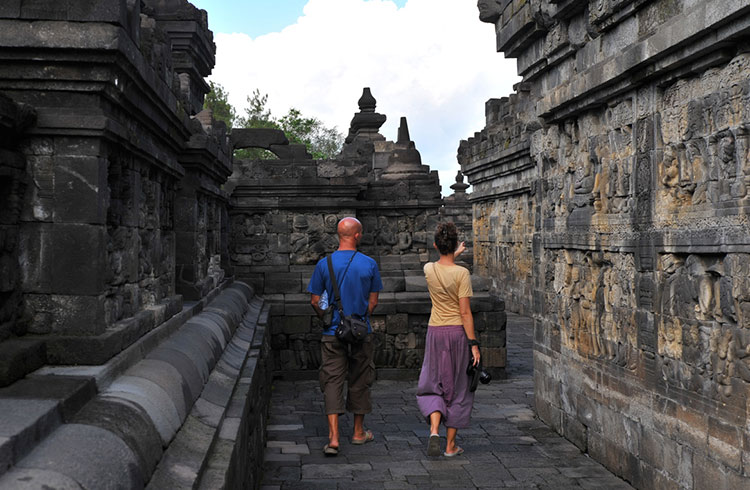 Photo © iStock.com/Atid Kiattisaksiri
Photo © iStock.com/Atid Kiattisaksiri
- Embrace Indonesia’s religious diversity
- Indonesia's ancient temples and spiritual sites
- Local experiences to seek out in Indonesia
- Enjoy a whirlwind of religious festivals
Embrace Indonesia’s religious diversity
Aceh province's adoption of sharia law in 2002 has been controversial. Most Indonesians take pride in their religious diversity and, whether you’re on Hindu-majority Bali, Catholic-majority Flores or Muslim-majority Java, you’ll typically find several world religions being practiced, as well as local variations that are distinctly Indonesian.
From Torajan Christians sacrificing buffalo to Balinese Hindus blessing a new car, Indonesia’s religious practices are never dull. As a visitor, it's important to show respect: everyone should cover their legs and shoulders before entering a temple, while women should also cover their hair before visiting a mosque.
Indonesia's ancient temples and spiritual sites
From the offerings that decorate every doorway to the brilliant funeral processions that fill the streets on auspicious days, Bali’s compact size and vibrant Hinduism make it Indonesia’s number one destination for visiting temples.
Gunung Kawi in Ubud and Goa Giri Putri Cave in Nusa Penida
During the rainy season (October - April), waterfalls trickle down the mossy meditation cells around Gunung Kawi, located just outside of Ubud. With its 11th-century rock-cut shrines, the valley feels both eerie and serene.
It's a proper scramble descending through the tiny hole that forms the entrance to Goa Giri Putri temple on Nusa Penida, but it's worth it. The incense-filled caverns stretch hundreds of meters back into the bowels of the island, and are home to seven shrines.
Hindu Prambanan and Borobudur temples on Java
More than five centuries after Java’s last Hindu empire fell, ancient temples still stand tall in the lush highlands. The elegant spires of Hindu Prambanan and the 72 stupas of Buddhist Borobudur have been recognized by UNESCO, and the ghostly ruins that loom from the mists of the Dieng Plateau are haunting and beautiful.
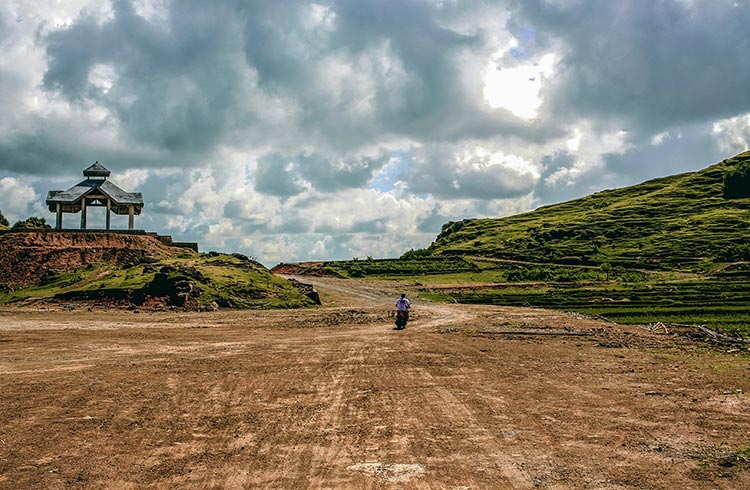
Local experiences to seek out in Indonesia
Often in Indonesia, conventional world beliefs blend with inherited animist practices (beliefs that objects, places and creatures possess a distinct spiritual essence).
Spiritual exploration in North Sulawesi
A morning tour in North Sulawesi might include a visit to a Confucian temple, a jumbo Jesus, ancestral tombs full of ancient magic, and the world’s largest menorah – erected by Indonesia’s tiny, native-born Jewish community.
Shrines and mosques in Surabaya
In Surabaya, after strolling the Arab Bazaar that surrounds the Muslim-only Ampel Shrine, you can visit the Cheng Hoo Mosque – a mosque shaped like a Chinese temple and dedicated to the admiral-turned-Chinese-god, Zheng He.
Enjoy a whirlwind of religious festivals
Indonesia’s religious festivals tend to be hard to plan for. Local wise men typically use a complicated calendar to set the exact date close to the time of the festival.
Festivals in Bali
That said, it’s hard to spend more than a week or so in Bali without seeing at least one religious celebration. Be it the lengthy festivals of Kuningan and Galungan that swing round every seven months, Nyepi, the “Day of Silence” (when the entire island, including the airport, closes down), or just a temple birthday ("odalan”).
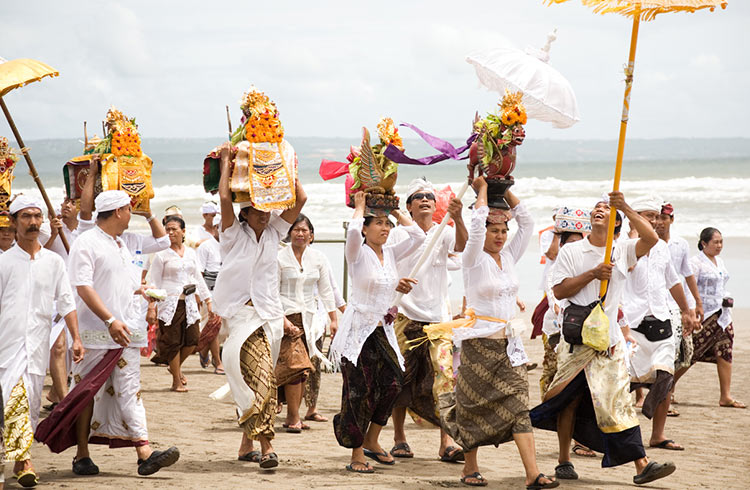
Lombok festivities
On Lombok, the Bau Nyale festival in February sees thousands racing into the sea, in search of the palolo worms that emerge from the coral to breed once a year – followed by several days of partying and processions.
Come October or November (depending on the year), Muslims and Hindus engage in a giant ritual food-fight at the Lingsar Temple.
Java’s festivals
On Java, Waisak (generally in May or June) sees thousands of worshippers descend on Borobudur to celebrate the Buddha’s birthday.
At the Yadnya Kasada (typically in June or July) Hindu Tenggerese pay tribute to the Bromo volcano. With six official religions, after all, there’s always something to celebrate.
Related articles
Simple and flexible travel insurance
You can buy at home or while traveling, and claim online from anywhere in the world. With 150+ adventure activities covered and 24/7 emergency assistance.
Get a quote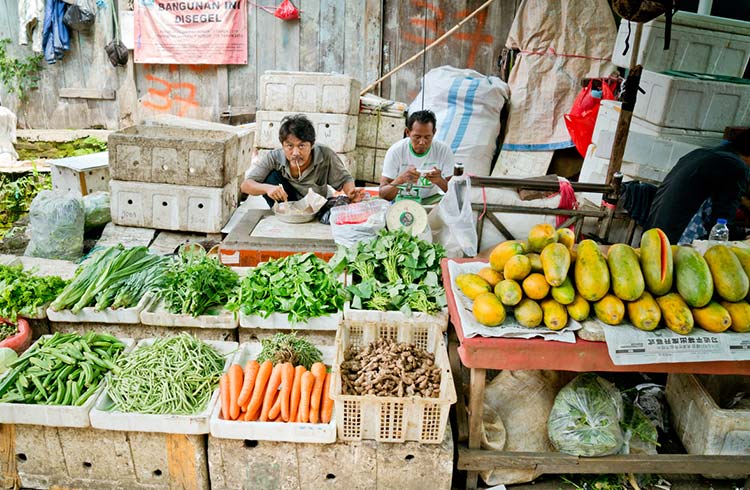
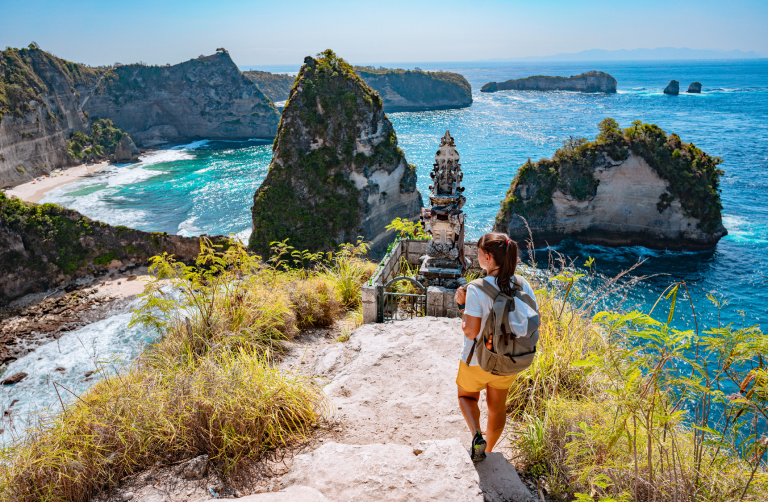

No Comments